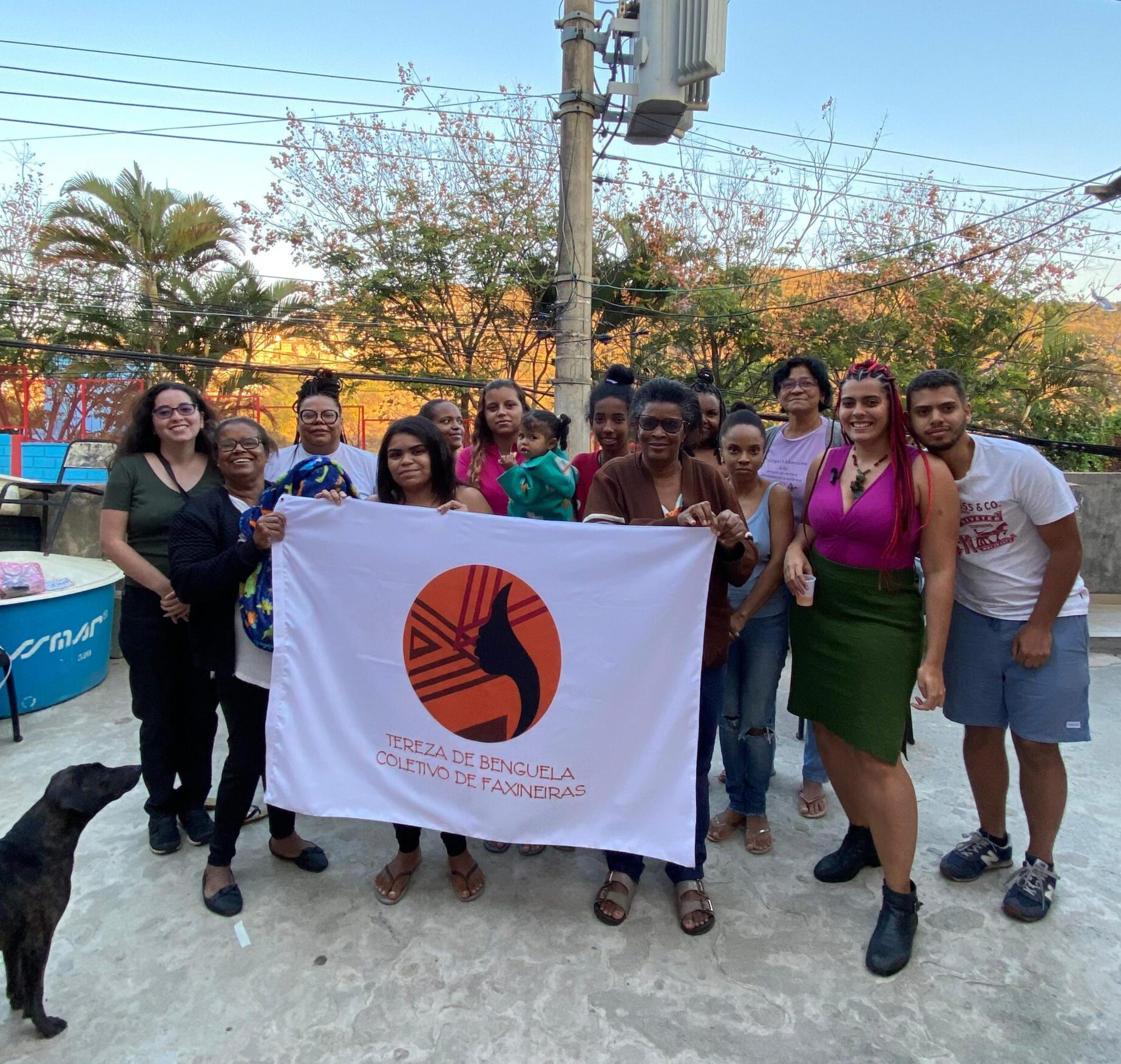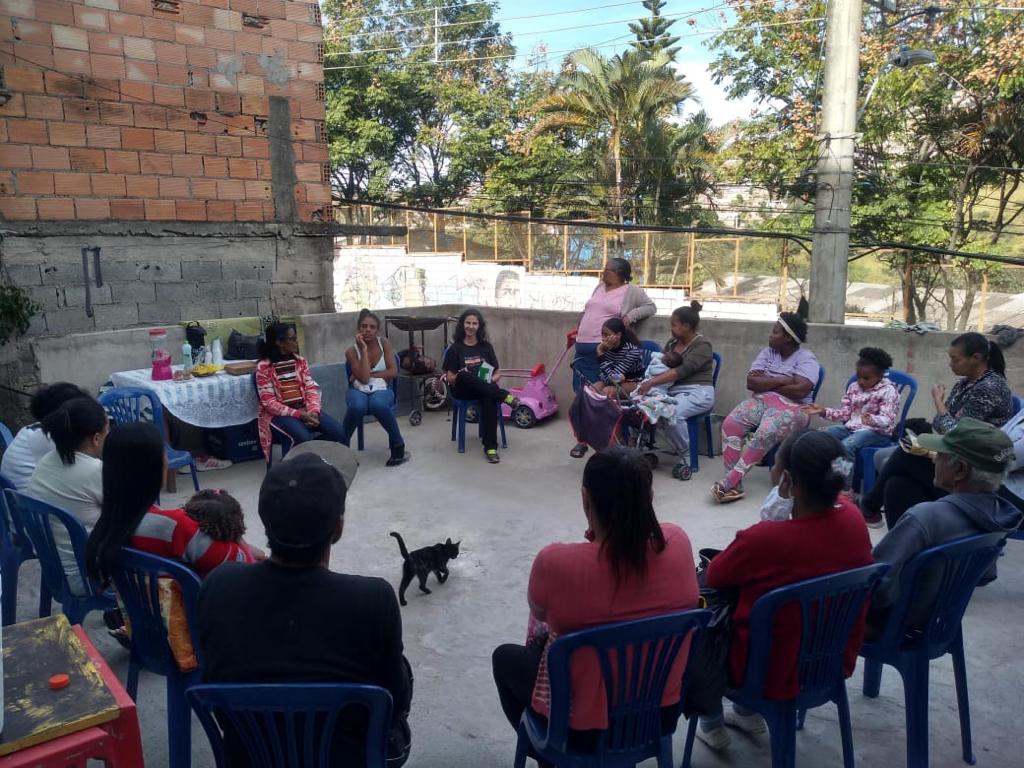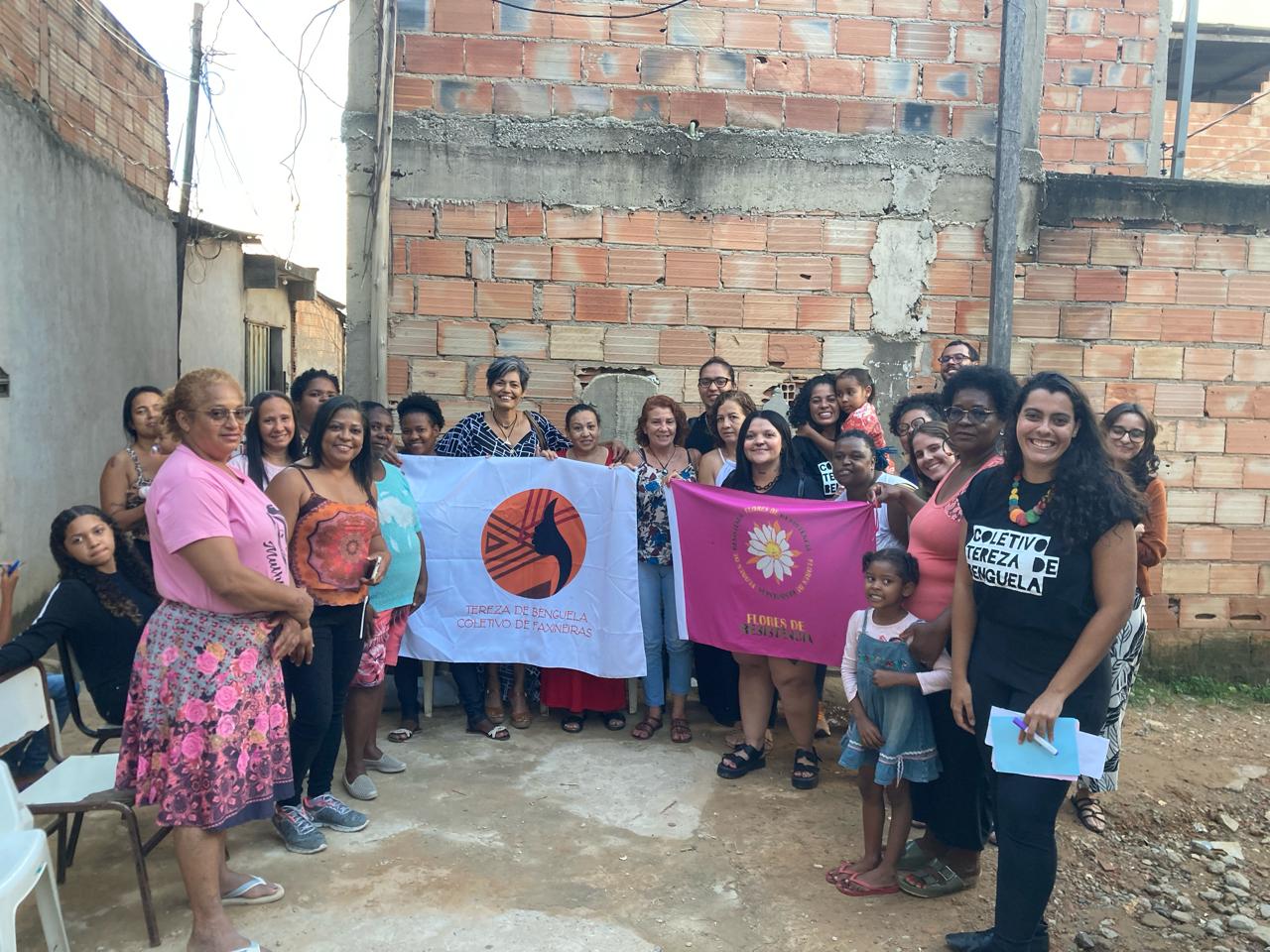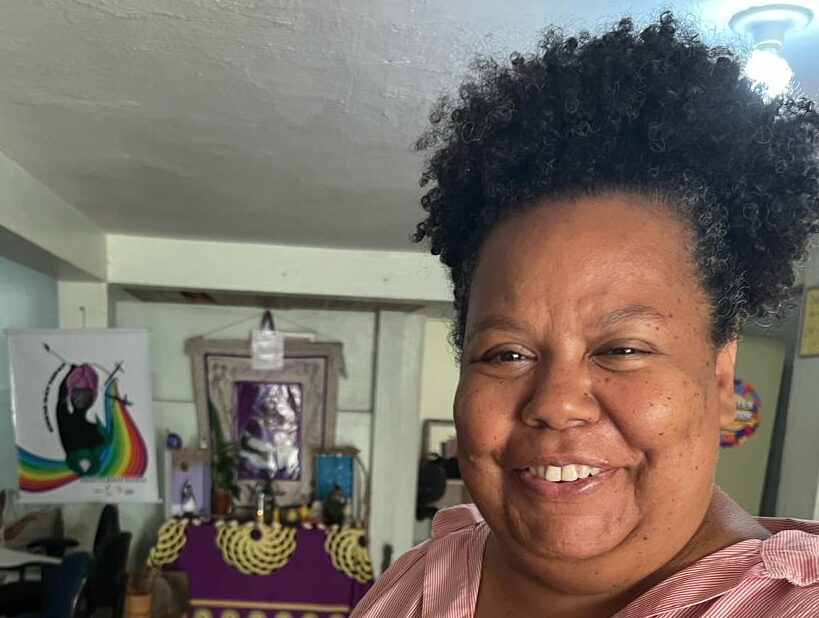Labor Day: Association of housekeepers fights for rights in Belo Horizonte
The Associação Tereza de Benguela emerged to offer cleaning services in the form of a cooperative and today leads the movement to defend the category; regulation is the main demand


On this Labor Day, Lupa do Bem spoke with Renata Oliveira, coordinator of the Associação Tereza de Benguela, which leads the movement for the rights of cleaning women in Belo Horizonte. The association began in 2014 as a cooperative, organizing several women around work and today is dedicated exclusively to the struggle of day laborers.
Born in Montes Claros, Minas Gerais, Renata Oliveira says she moved to Belo Horizonte when she was 18 and started working at a multinational as a financial coordinator. The excess work, however, caused serious mental health problems, taking her away from her role for two years. Upon her return, she was fired.
“That was in 2012. I had a very good CV, but I couldn’t get a job. Things got worse and I decided to clean up. I joined feminist groups in Belo Horizonte on Facebook, told my story and asked for an opportunity to clean for women,” she recalls.
Below, we have separated the best moments from the interview. We talk about the job market, the rights, the care economy, the emancipation of day laborers and much more. Check out!
The Tereza de Benguela collective
“One day, in one of the feminist groups in BH, a woman posted a message like this: ‘Guys, do you have references for the cleaning lady Janaína? Can you tell me if she steals?’ I was very scared! And I said: ‘Nobody asks a question like that about a doctor, a teacher, an architect. Why does it have to be so derogatory, so morally offensive to the cleaning lady and maid?’ Then an argument started and when it ended, some women called me in private saying that I needed to do something. ‘Do what?’ I asked. And they responded: ‘open a cooperative!’ So I went there and with their support, I founded Tereza de Benguela.”
From cooperative to association
“When I opened the cooperative, a lot of cleaning women came in. I was the coordinator. But there came a time when I said: ‘we can’t continue as a cooperative, because I no longer want to work in the market in this way, with this income generation.’ I wanted a space where I could talk about the struggle of women day laborers. Thinking about a social movement, a space where people could see these women exist. With this, we changed the format of Tereza. We stopped being a cooperative and became an association. Today we have CNPJ, accountant, everything is ok.”
Job market
“Today Tereza’s main fight is for the rights of day laborers. Because when the PEC for domestic workers came out in 2013, they left out day laborers. They were excluded from any social rights and fell into informality. And with the precariousness of work, the decline in formal employment contracts and the union waiving contributions, informality has grown a lot. But this informality cannot grow and remain without a destination. That’s why we have to be together, fighting for a law that protects day laborers, trying to guarantee social security. These women are in other people’s homes every day, caring, cleaning, cooking, doing everything. How are they going to retire?”

Care economy
“Here in Belo Horizonte, the care of people with disabilities and the elderly was much debated, but little was said about the cleaning lady and the domestic worker. They did not debate, for example, how they would be included in this policy. Maids and cleaners are always the last to be remembered. The day laborer, mainly. It is part of the precariousness of care work, it is in a place where it is much more difficult to access rights. So the care policy also needs to reach them. However, in Brazil there is no research on day laborers. The data coming from IBGE and the Ministério do Trabalho are based on domestic workers’ unions. And there is little data, not all capitals in Brazil have unions. If we don’t have this data on how many day laborers there are in the country, how will they be included in the care plan?”
Emancipation of the cleaning woman
“Cleaning women and domestic workers are doing care work so that other women can exercise their right to be a lawyer, be a doctor, or a teacher. And it is necessary to change this social vision, this very bad status associated with day laborers. Because it is a profession with a slavery heritage, people do not believe that it is possible to emancipate yourself as a day laborer. They believe that they will only be able to emancipate themselves if they leave this place and go to another.
White women are emancipated from the moment they are born. Black women have to fight hard for this. I am not considered an emancipated woman. Regardless of everything I’ve already done, I need a white woman to emancipate me. So it is important to talk about this emancipation, about this social mobility, of leaving this place of the employee, of the day laborer, of vulnerability, to take the place of a working woman providing services.”
Campaign
“I really want to run a campaign for those who hire day laborers. Explain what a day laborer’s service is and what it is not, although I think this definition of work is complicated, because it depends a lot on the relationship between the person hiring and the day laborer. There are day laborers who do everything, there are day laborers who don’t… In any case, it’s important to run a campaign for the people they hire, to talk about this place of exploitation and devaluation of work. People should unite, especially women, in the struggle of day laborers and talk more about valuing this work.”
Rights
“I believe that the main fight is social security. How this will be done, we still don’t know, because the day laborer doesn’t have a single boss, she works for several people. But we have the example of Argentine legislation, which records by the hour. So, regardless of how long the person works, the time record can cover daily workers. We still don’t know if Brazilian statute and legislation can accommodate this. Because Brazil ratified convention 189, of the Organização Internacional do Trabalho (OIT), which talks a little about this, but did not implement it.
If we could implement this law, we would make very good progress. We know that the creation of the law does not guarantee that the cleaning women’s rights will actually be recognized. This is another step. Domestic workers, for example… the PEC was created for them and formalization fell by 27%. So, that’s another fight. But the ideal would be to at least guarantee Social Security. The cleaning ladies don’t talk much about signing up for employment or unemployment insurance. Their biggest fear is not having a pension.”


Cleaning women movement
“We are going to hold the first public hearing in Belo Horizonte to address the issue of cleaning women, talk about regulations and listen to the expectations of a daily wage worker. We are in this place of emancipating these women, of empowering them, of teaching them the social rights they have as women. And people give more credibility when it is an established association, with a CNPJ and a governing body. This all makes a difference in the eyes of those who are receiving you. Today, for example, we were able to speak to deputies, receive parliamentary amendments, participate in public notices… We went to Brasília, stayed there for seven days, reported to the Ministério dos Direitos Humanos, the Ministério da Igualdade Racial… Doing this alone, without any type of organization, without anything, is very difficult. The fight is collective!”
Empowerment
“We believe in articulation as a tool for unity. So, we go to the territory of these women, we seek leadership and consolidate the cleaning women in that space. We talk a little about the housekeepers’ rights, we open it up so they can also talk a little about their pain, what they hve been going through and what they hope for. Afterwards, we invited women to participate in Tereza de Benguela, to go to meetings and participate in activities. We have a criterion that is to always pay for these women’s transportation and lunch, so that they can travel to meetings. They can also take their children, we have someone to provide entertainment for the children while we are in meetings.”
Change in Brazilian families
“The job market for domestic workers has changed a lot. The format of families has changed, there is no longer that large family format, which needs someone to take care of it 24 hours a day. There are no longer these huge houses… everything is smaller, they are apartments, most of them with two people and a child or even without children, at most one animal, and everyone goes out to work, there is no longer this need for someone to clean the house every time and everyday. And as there was this change, informality grew, people got a formal contract.”
Work similar to slavery
“An important work of the association is to present to women the social mechanisms that the State has to help them free of charge. We took it to the Ministério Público, to file a complaint with the Ministério do Trabalho. We took it to CRAS, where it is possible to use Bolsa Família, to get social transport vouchers. Here in Minas Gerais we don’t have a domestic workers’ union, no union representation. The representation that exists is us. So we also receive these women, to be able to send them to somebody that can take care of their labor and social rights. Additionally, we help women survivors of slavery-like work, because many day laborers work on the front lines of slavery-like work.”


Want to support this cause?
The Associação Tereza de Benguela does not have a physical headquarters and operates through participation in notices, parliamentary amendments and donations. Volunteer work is always welcome. To find out more, visit the website and follow the profile @coletivoterezadebenguela on Instagram and Facebook.



